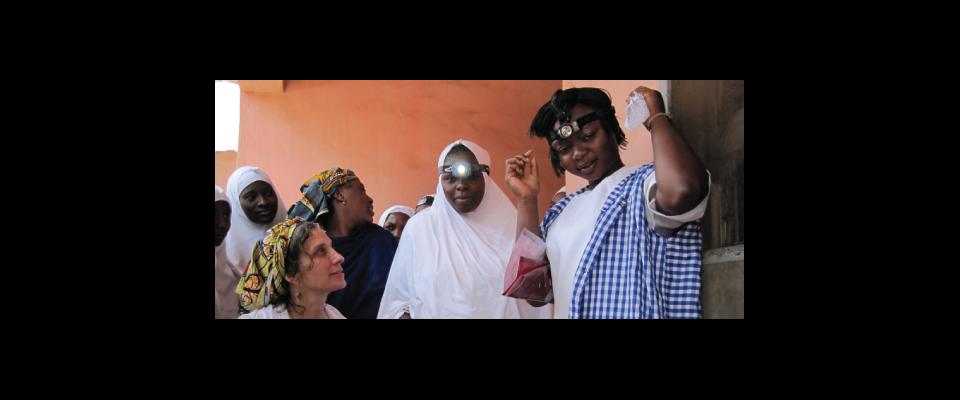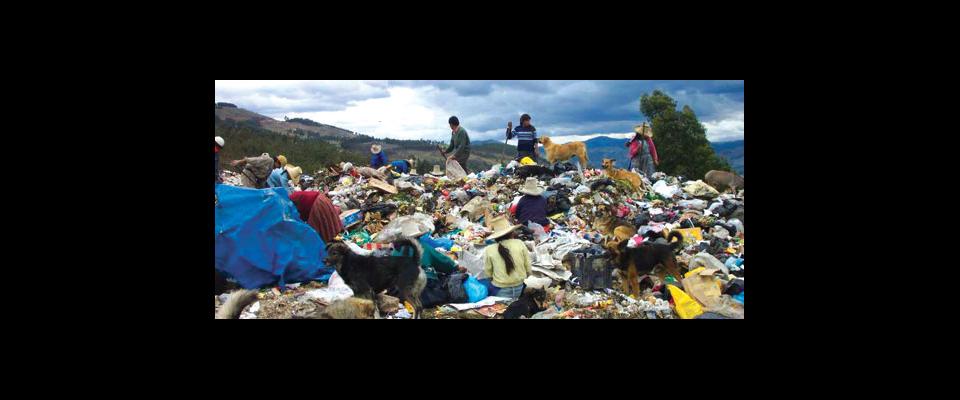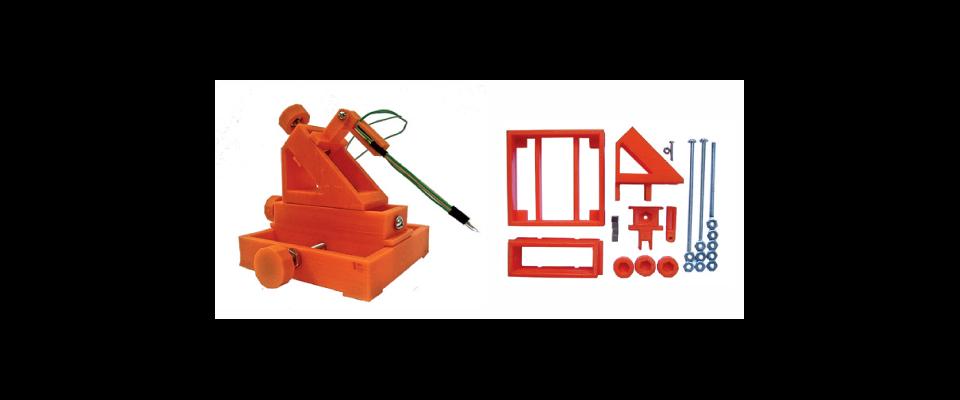From purifying water in Ecuador to open-sourcing stem-cell research, the Big Ideas project is matching Cal students’ innovations with the money and connections to make them happen.
If you want to get something done, it’s worth getting to know Tom Kalil. He advised President Bill Clinton on technology and economics. He has friends like eBay creator Pierre Omidyar, whose foundation funds the best aspiring do-gooders to do good. As special assistant to the chancellor for science and technology, Kalil is using his experience and networks to help students who want to change the world.
In the spring of 2005, Omidyar provided seed money to Kalil’s incipient Big Ideas@Berkeley project, designed to germinate interdisciplinary student-led activities. That can mean clubs, research, new classes, community service projects, work for corporate clients—any ideas that students can design to address major societal challenges in a practical way.
“Generally the way it works on campus is that a faculty member comes up with an idea, and if they have success with grants then they can hire students to do the work with them,” Kalil says. “But if the students are the authors of the ideas, the amount of additional time and energy they’re willing to put into them is phenomenal.”
Lia Marshall, a 19-year-old Berkeley junior and public health major, has big ideas—like creating access to clean and safe drinking water for the billion people in the world who don’t have it. To start, she wants to help the indigenous Shuar people of remote eastern Ecuador gain that access, and to improve their local nutrition and medicinal resources. In the fall of 2005, she learned of a white paper competition sponsored by the School of Public Health, with assistance from Kalil’s new initiative. She recruited a team from the Cal Undergraduate Public Health Coalition, and developed and submitted a proposal that resulted in a $2,000 grant for the Shuar Health Project.
Marshall found herself doubly energized after her first in-person meeting with Kalil. “One of the first things he said to me was, ‘Lia, if money wasn’t an issue, what project would you do?’ And he says that to all of the Big Ideas projects. Not that he can actually give us unlimited funds, but that’s the kind of mentality he wants us to take—don’t let money be a limiting factor, do what you actually think needs to be done, and somehow if it’s a good project the money will follow.”
The early boost from Big Ideas has sparked the Shuar Health Project in many ways, making it possible for the locals in Ecuador to buy supplies and for Marshall’s team to conduct surveys that will guide their work. Kalil’s initial faith in the idea led to another grant from the campus Center for Occupational and Environmental Health. The project, which includes new fish farms and gardens to boost nutrition and better water purification technology, began during a seven-week trip this past summer, and the team will return after Christmas to assess the progress that locals made in the fall and plan for future action.
Kalil has a natural enthusiasm for working with students like Marshall, who haven’t just pulled ideas out of the air but who come to him with enough experience to persuade him they know what they’re talking about. In the summer of 2005, Marshall spent a month in the Ecuadorian Amazon. She was there to do reforestation work with a local environmental conservation NGO, the Jatun Sacha Foundation. Building relationships with the Shuar-speakers was not easy, as Spanish is their second language as well as hers. But she persevered, and says she came to understand that there was a tremendous disconnect between the work she was doing and the expressed needs of the locals.
“The people there are living in pretty rural conditions, in one-room huts often made out of palm with thatched roofs. They are concerned with their day-to-day needs for survival,” Marshall says. “One of the biggest issues I saw there was water contamination. Wherever I went, I was seeing these huge bellies on the kids, looking like they were pregnant and about to give birth with all the parasites in there from the water.
“There’s just something about seeing it in person. Sometimes when you see these things on brochures that people hand out, you feel so helpless. And then you get there and you talk to the people and you’re like, ‘Okay, we can work on this.'”
When it was time for her to leave the region, community leaders invited her to return to work on some of the potential projects they’d discussed— studying ways to clean up local water at the point of use, community food and medicinal gardens, fish farming, chicken cultivation, and microfinance groups.
“And I said ‘Sure, that sounds great!'” she recalls. “But I had no idea how complicated it would actually be.”
Kalil thrives on complexity. His normally level tone ratchets up when he excitedly explains his concept of an “Ecosystem for Student-Led Projects,” illustrated by a colorful diagram on the Web site bigideas.berkeley.edu. In the center, in red, there are the “Interdisciplinary student-led teams.” Surrounding that nexus is a swirl of yellow, green and blue that encompasses “Supportive campus environment,” “Faculty mentors,” “Extended Cal community” and “The World.” In November, with support from CommerceNet and social e-commerce start-up ChipIn, the Big Ideas Electronic Marketplace launched at the Web site. The point is to link those student-proposed solutions that Kalil and his team have vetted as the most promising with the money, knowledge, and other connections to make them real.
Omidyar’s donation and Kalil’s energy brought in matching money from the Berkeley College of Engineering, the Center for Information Technology Research in the Interest of Society (CITRIS), the Center of Integrated Nanomechanical Systems (COINS), and the venture capital firm Sevin Rosen. In September, in the first of what Kalil plans to make an annual “Bears Breaking Boundaries” competition, Big Ideas awarded a total of $100,000 to 29 student teams after getting submissions from over three times that number. Winning proposals addressed tasks as diverse as beautifying Lower Sproul Plaza, accelerating commercialization of clean energy technology, creating a new campus major linking engineering with social issues, and open-sourcing stem-cell line research.
Big Ideas has created a community, too. Marshall and her teammates recently had beers and traded ideas with some of the other student participants who are working on clean water and medicine availability in India.
“That’s one thing that I love about Berkeley,” Marshall says. “People don’t just go around whining about things. They actually do something.”





















